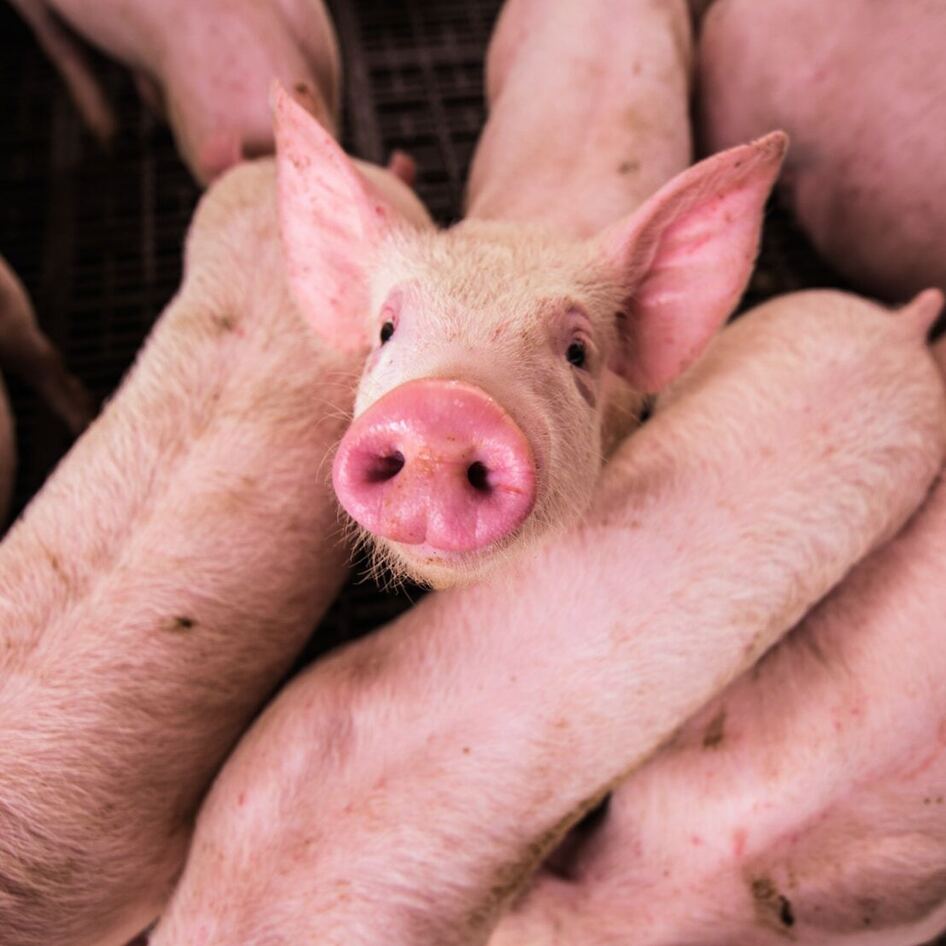How to Vote for the Animals in the 2016 Election
This election season, you can vote on factory farming, wildlife trafficking, and other animal protection issues.
October 24, 2016
Sick of all the political ads? Tired of hearing about emails, sniffles, and locker room talk? Ready to build a wall around yourself and for this election to be over?
In some states, you’re in luck: You can do more than just decide which candidate you like the most (or dislike the least). You can have a voice on the humane treatment of animals—voting on factory farming, wildlife trafficking, and other animal protection issues.
Since the early 1990s, The Humane Society of the United States and other groups have been involved in about 50 statewide ballot contests, and voters have sided with animals about 70 percent of the time. Our movement has banned cockfighting in three of the last states where it remained legal (Arizona, Missouri, and Oklahoma), set humane treatment standards for dogs in the largest puppy mill state (Missouri), stopped extreme confinement of animals on factory farms (Arizona, California, and Florida), and adopted new policies to restrict greyhound racing; horse slaughter; body-gripping traps and poisons; trophy hunting of bears, cougars, wolves and more.
When politicians in state legislatures side with special interests—big agribusiness, the trophy hunting lobby, or even cockfighters—animal advocates can petition to put these questions directly to the people. Here are the animal issues in play for the November 2016 election:
- >> In Massachusetts, a “Yes” vote on Question 3 would phase out the extreme confinement of veal calves, breeding pigs and egg-laying hens in small crates and cages where they are virtually immobilized for their entire lives, and will ban the sale of products that come from these confinement systems. Question 3 adds momentum to what’s already occurring in the marketplace—with McDonald’s, Walmart and 200 other major food retail brands pledging to get battery cage eggs and gestation crate pork out of their supply chains.
- >> In Oregon, a “Yes” on Measure 100 will help save endangered sea turtles, elephants, rhinos, and other wild animals threatened with cruel poaching and extinction. Every day, close to 100 elephants are brutally killed in Africa, their tusks hacked off to supply the black market for ivory trinkets. Poachers poison watering holes with cyanide, killing hundreds of elephants at once. If passed, Oregon will join California, Washington, Hawaii, and other states in shutting down local markets for those who seek to profit from this destructive wildlife trade.
- >> In Oklahoma, animal advocates are urging a “No” on State Question 777, a measure referred to the ballot by politicians to amend the state constitution with a so-called “right to farm.” It would protect corporate factory farms and big agribusiness at the expense of Oklahoma’s family farmers, land, and animals, and could prevent future restrictions on extreme factory farming practices. The measure is so broadly worded that it could prevent future restrictions on any “agricultural” practice, including puppy mills, horse slaughter, and raising gamefowl for cockfighting.
- >> In California, a “Yes” on Proposition 67 will protect the state’s ban on plastic grocery bags, which wash into rivers, lakes, streams, and the Pacific ocean, where they are ingested by or entangle sea turtles, otters, seals, fish, and birds. Some ocean animals mistake bags for food, fill their stomachs with plastics, and die of starvation.
- >> In Montana, a “Yes” vote on I-177 would restrict the use of cruel traps and snares on public lands. These traps are indiscriminate and like landmines of the natural world, maiming or killing any animal who triggers them, including endangered species and family pets.
- >> In Colorado, Amendment 71 would make it more difficult for citizens to have a say on future constitutional ballot measures—requiring a 55 percent vote to pass—including those dealing with animal protection. Animal advocates have used the ballot initiative process in Colorado to ban spring, bait, and hound hunting of bears, and to ban cruel steel-jawed leghold traps. The anti-trapping measure passed with 52.1 percent in 1996, and granting women the right to vote passed with 54.7 percent in 1893—these and many other measures would have failed under the onerous new standards imposed by Amendment 71. Why is it okay for legislators to be elected with a narrow majority or even a plurality, but an animal welfare reform must have a supermajority to be enacted? Can you imagine a factory farming measure “failing” because it got 54 percent of the vote? Animal advocates urge a “No” vote on this attack on citizen voting.
When you enter the voting booth or send in your mail ballot in the next couple weeks, make sure you don’t stop after the candidate races. Continue down the ballot and review the issues at stake, and you could have a role in protecting animals from cruelty and suffering.
Michael Markarian is chief operating officer of The Humane Society of the United States, and president of the Humane Society Legislative Fund. He writes the “Animals & Politics” blog at hslf.org.
JUMP TO ... Latest News | Recipes | Guides | Health | Shop







